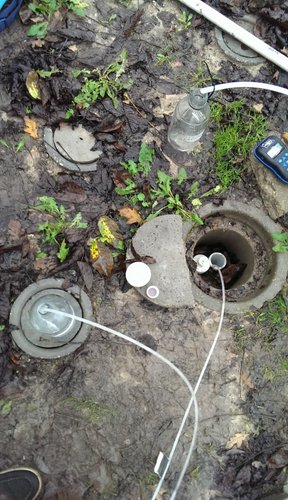
Sampling of ground water for measuring pesticide-degrading bacteria
The soil contains numerous bacterial and fungal species that drives many processes, which are essential for the soil ecosystem – so called ecosystem services. This can be degradation of plant residues to mobilize the nutrients that plants need for growing. However, microorganisms also plays an important role by degrading toxic chemical compounds in soil and aquifers.
Emission of toxic pollutants, in particular from agriculture and industries, cause huge problems in our environment and Danish Regions spend substantial resources on the purification of contaminated soil and preventive pumping of contaminated groundwater away from sensitive water resources (e.g. drinking water resource). The degradation of most types of contamination involves activity of microorganisms.
Research at the Department of Environmental Science has focus on methods for following the microorganisms that break down especially pesticides, chlorinated solvents and endocrine disruptors. However, there is also focus on how toxic substances affect the microbial community in the soil and the important ecosystem services they drive.
Focus areas: